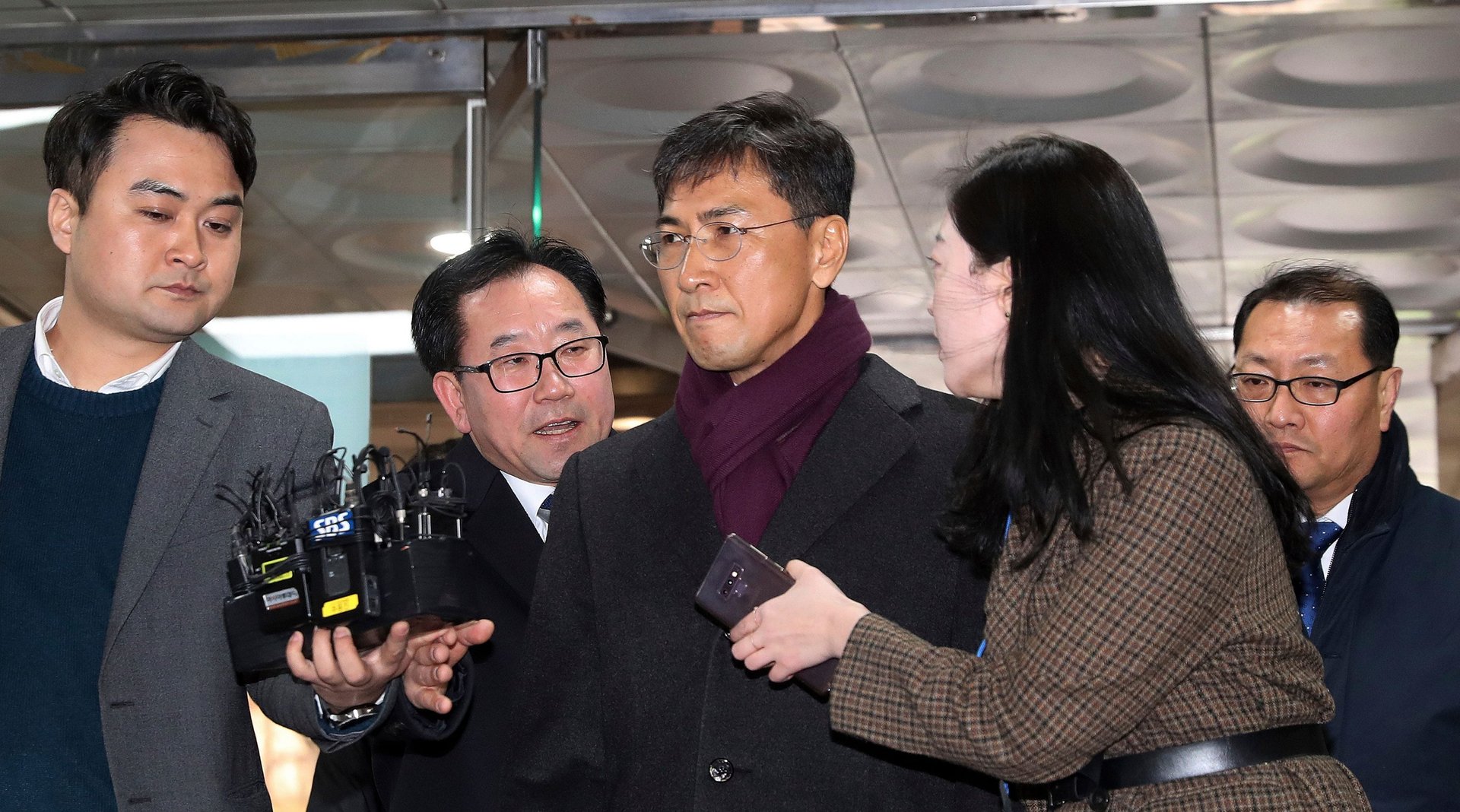A Korean court overturned a ruling to find a powerful politician guilty of sexual assault
When the #MeToo movement exploded in South Korea last year, the most powerful figure to be accused of sexual misconduct was Ahn Hee-jung, a former provincial governor and a close ally of president Moon Jae-in. A court in Seoul, however, ruled in August that Ahn wasn’t guilty, disappointing many campaigners for women’s rights in the country.


When the #MeToo movement exploded in South Korea last year, the most powerful figure to be accused of sexual misconduct was Ahn Hee-jung, a former provincial governor and a close ally of president Moon Jae-in. A court in Seoul, however, ruled in August that Ahn wasn’t guilty, disappointing many campaigners for women’s rights in the country.
Today, a higher court overturned that ruling and sentenced Ahn to three-and-a-half years in prison, making him the most high-profile figure to be punished for sexual misconduct since the outbreak of the #MeToo movement. The Seoul high court ruled that Ahn, 53, had abused his senior position to sexually assault a female aide.
Ahn stepped down from his post as governor of South Chungcheong province in March after his former secretary, Kim Ji-eun, claimed in a TV interview that he had raped her four times. Ahn, who previously called himself a feminist, was then indicted on charges of abusing his supervisory power over Kim. Ahn maintained that the sex was consensual throughout the investigation, though after last year’s ruling he said, “I am sorry and I am so ashamed,” and that he would “make efforts to be reborn again.”
The allegations against Ahn further fueled South Korea’s fledgling #MeToo movement, which kicked off in January 2018 after a public prosecutor, 45-year-old Seo Ji-hyun, accused a former senior justice ministry official of sexual assault. That official, Ahn Tae-geun (no relation to Ahn Hee-jung), was also recently sentenced to prison for abusing his position to force the transfer of Seo from her role.
The #MeToo movement, and former governor Ahn’s misconduct in particular, have shaken South Korea, but the movement remains highly divisive in the deeply patriarchal country, with many likening #MeToo to a witch hunt. Many also objected to the actions of Ahn’s former secretary, and other accusers of sexual assault. Ahn’s wife was among those who publicly criticized Kim, the former secretary, alleging that she had behaved like Ahn’s girlfriend. Others accused Kim of intentionally seducing Ahn.
There have been other #MeToo-related convictions in recent months in South Korea. The first jail term after the movement emerged in the country was meted out in September, when a theater director was sentenced to six years in prison for sexually assaulting members of his drama troupe. In November, a pastor was sentenced to 15 years in prison for raping eight female congregants. This week, a court increased the prison sentence of the the former national speed-skating coach from 10 months to 18 after he was found guilty of assaulting Shim Suk-hee, a former Olympic champion. Shim also accused the coach, Cho Jae-beom, of repeatedly raping her, a charge that his lawyers have denied (paywall). Police are still investigating those allegations.